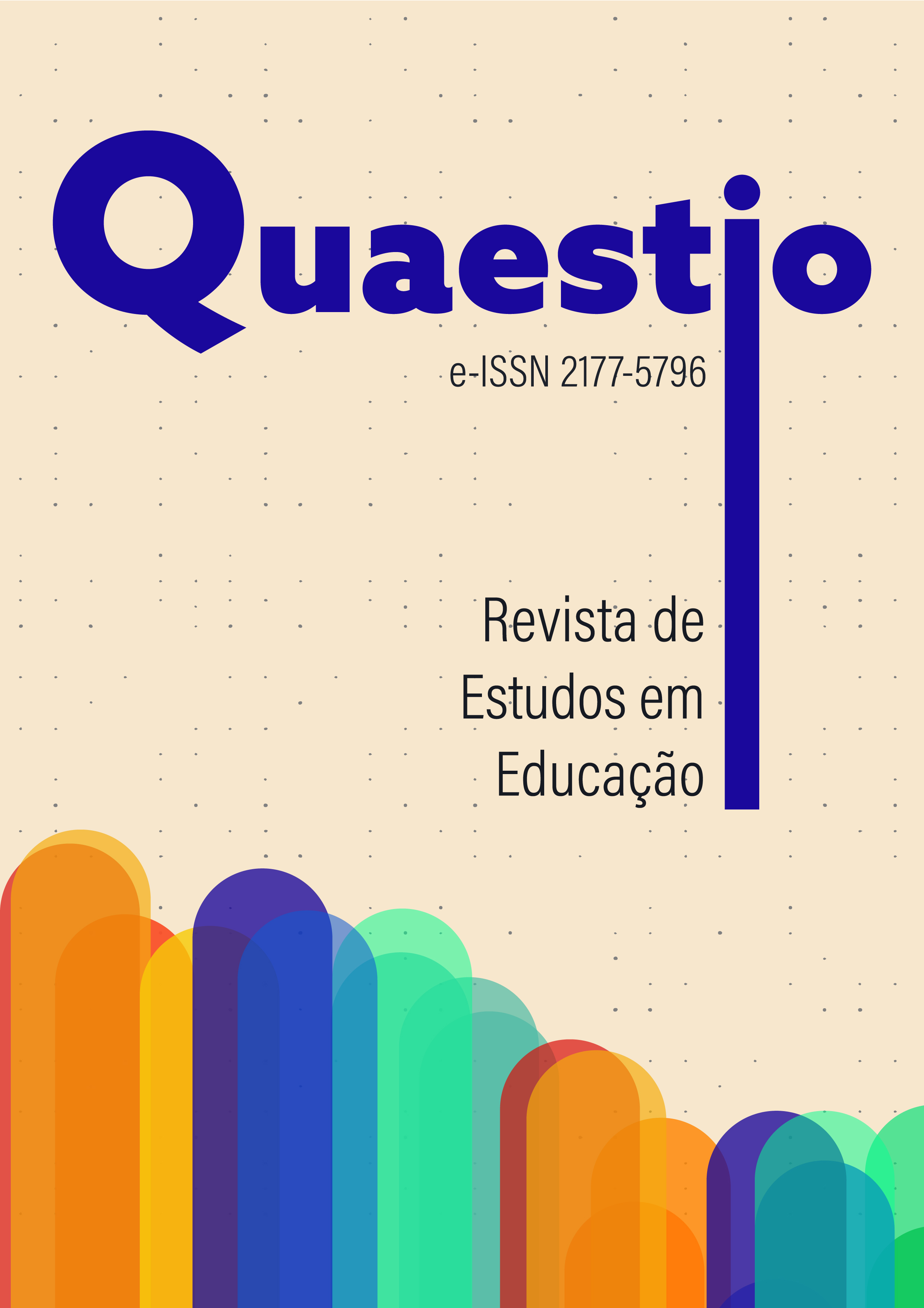Higher psychological functions on Brazilian Stricto sensu research
a systematic review in BDTD
DOI:
https://doi.org/10.22483/2177-5796.2023v25id5152Keywords:
higher mental functions, educational research, stricto sensu research.Abstract
The concept of higher mental functions (HMF), conceived by Lev S. Vygotsky and widely used in educational and psychological research, is considered central in this author's work and in developments of Cultural-Historical Theory scope. Given its theoretical-practical relevance, and the absence of an investigation that systematizes how this concept has been studied among Brazilian researchers, this article presents the results of a systematic review carried out in Brazilian Theses and Dissertations Digital Library. The research on screen aimed to verify the presence and incidence of the HMF concept in Stricto sensu investigations developed in postgraduate programs in Brazil. The search for “higher mental functions” resulted in 114 researches, 75 Master’s Thesis and 39 PhD Dissertations. The main results indicate: the majority published in the second decade of the 21st century; 62% developed in programs in the area of Education and 22% in Psychology; concentration in the Southeast (43%) and South (37%) regions, mostly in the states of São Paulo, Paraná and Rio Grande do Sul; only 9% in the Northeast region, 8% in the Center-West and less than 2% in the North Region – highlighting regional asymmetries concerning this concept study. The most frequent themes are related to teaching practices, special education and aspects related to language, which helps to demystify the idea that Vygotsky's concepts would not have “applicability” in educational contexts of practices. The present work, finally, contributes with an unprecedented detailed systematization about the presence and incidence of HMF concept on Brazilian Stricto sensu research.
Downloads
Downloads
Published
How to Cite
Issue
Section
License
Copyright (c) 2023 Quaestio - Revista de Estudos em Educação

This work is licensed under a Creative Commons Attribution-NonCommercial 4.0 International License.
Esta licença permite que outros remixem, adaptem e criem a partir do artigo para fins não comerciais, desde que atribuam ao(s) autor(es) o devido crédito e que licenciem as novas criações sob termos idênticos.
Os artigos publicados são de total e exclusiva responsabilidade dos autores, que mantêm os direitos autorais e atribuem o direito da primeira publicação para a Quaestio: Revista de Estudos em Educação do Programa de Pós-Graduação em Educação da Universidade de Sorocaba.
Outros acordos contratuais podem ser feitos pelos autores, para posterior distribuição da versão do artigo (por exemplo em páginas institucionais ou pessoais, ou em livro), explicitando que o trabalho foi publicado nesta revista .

















